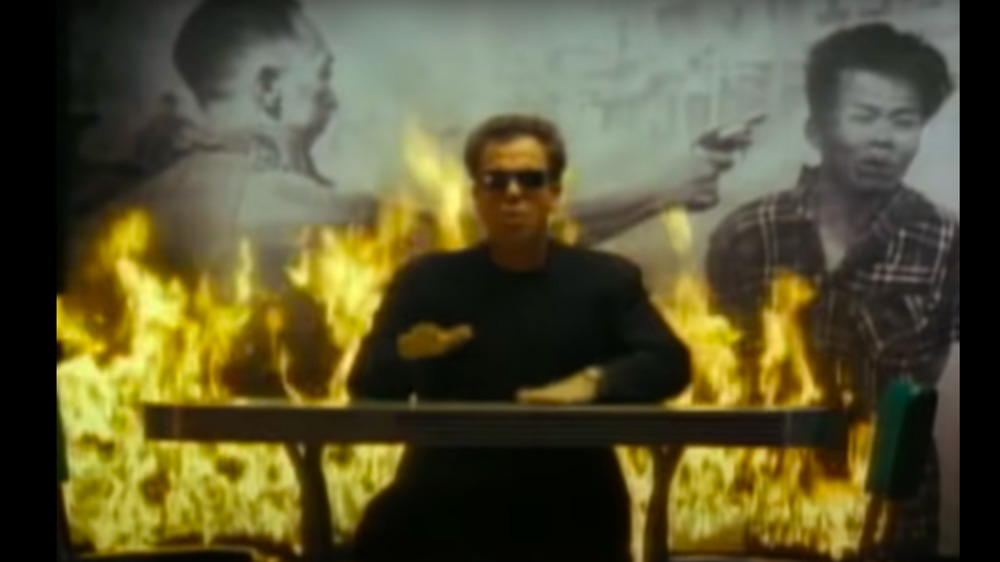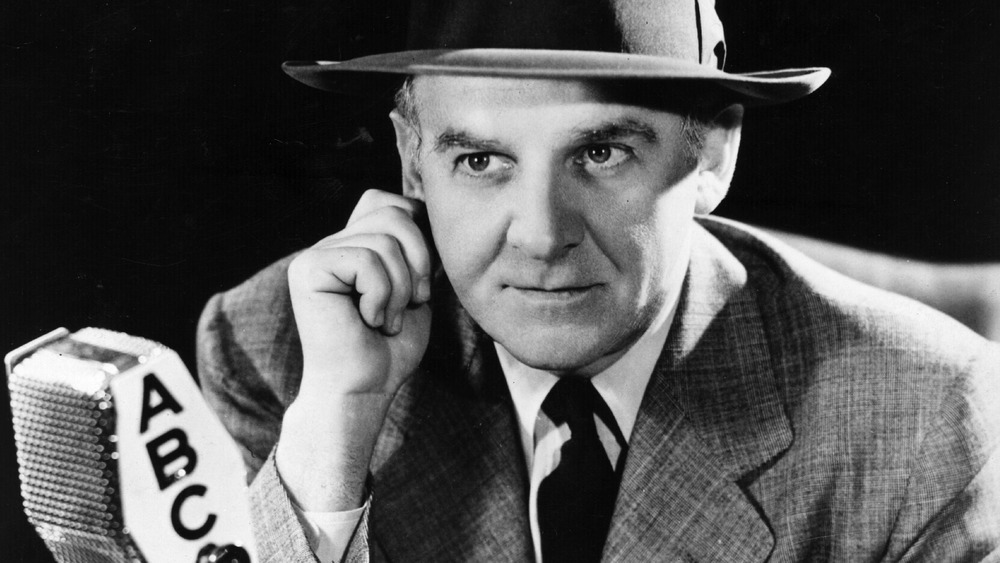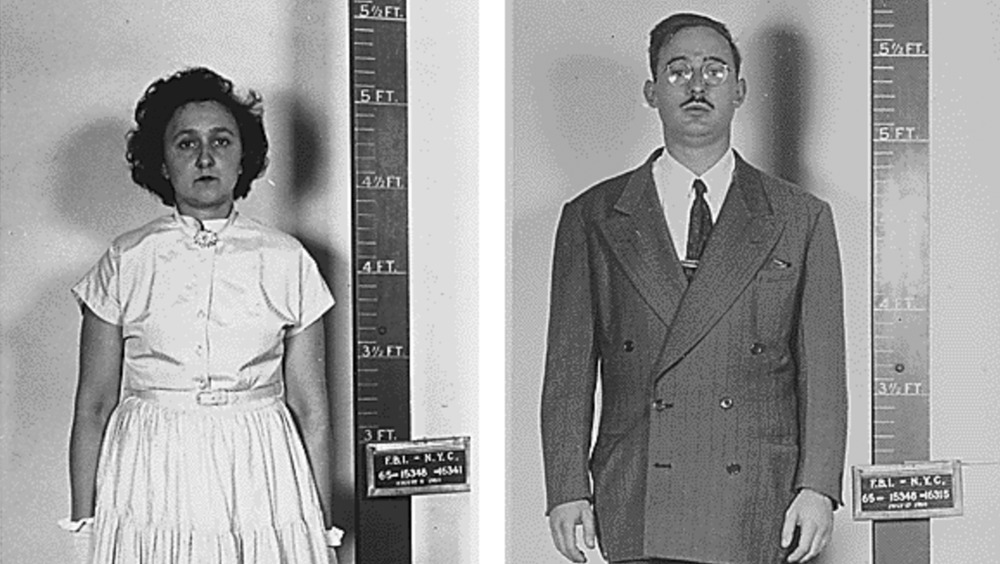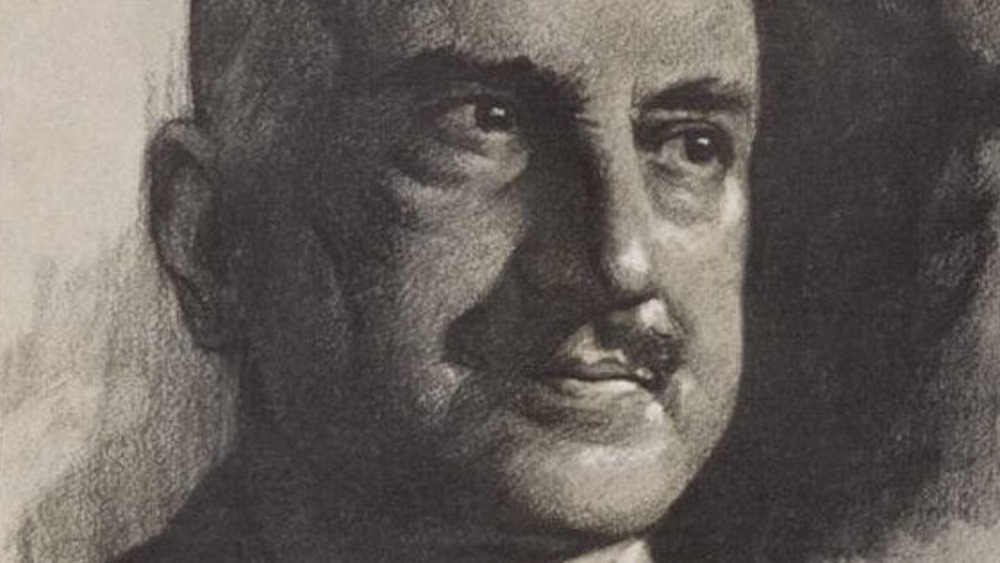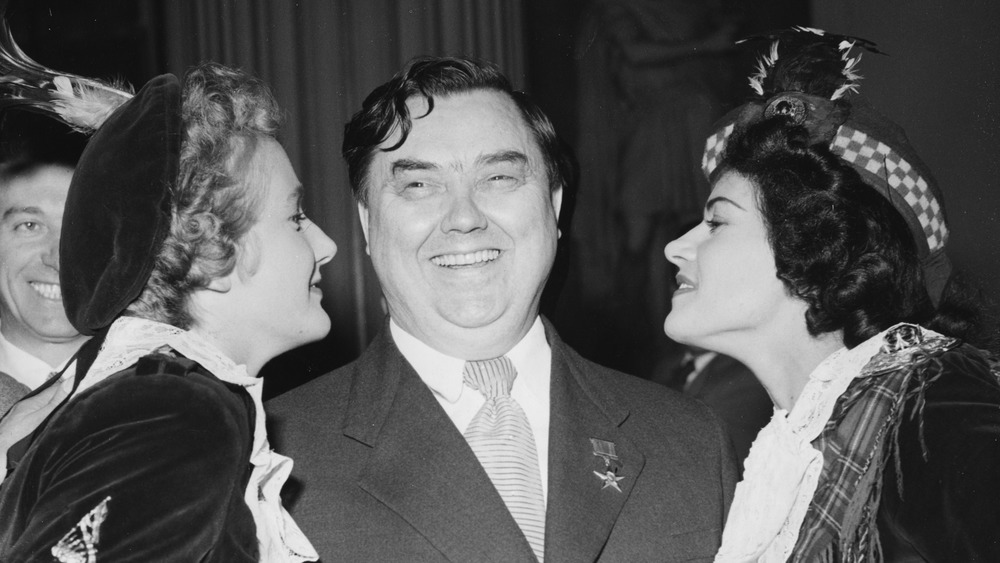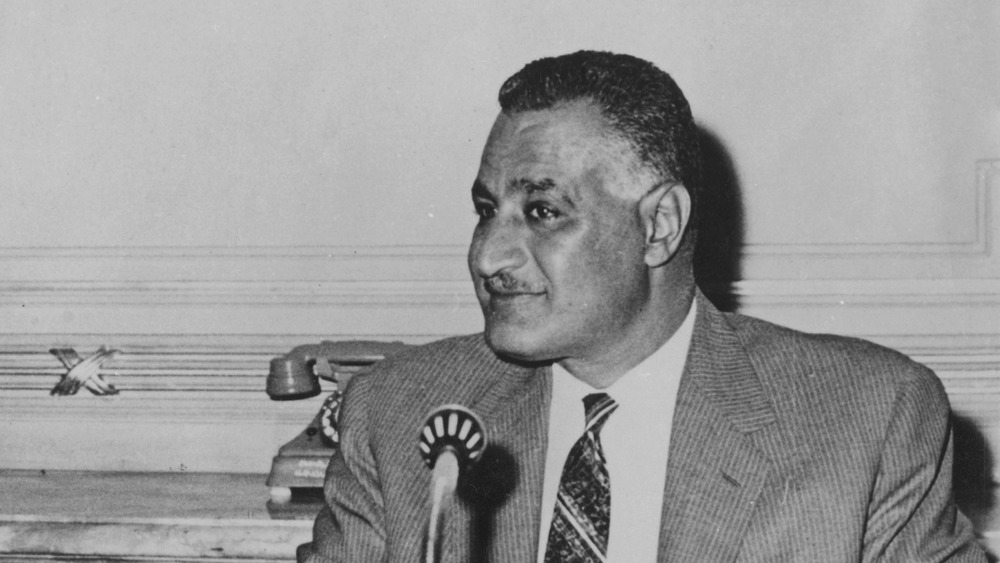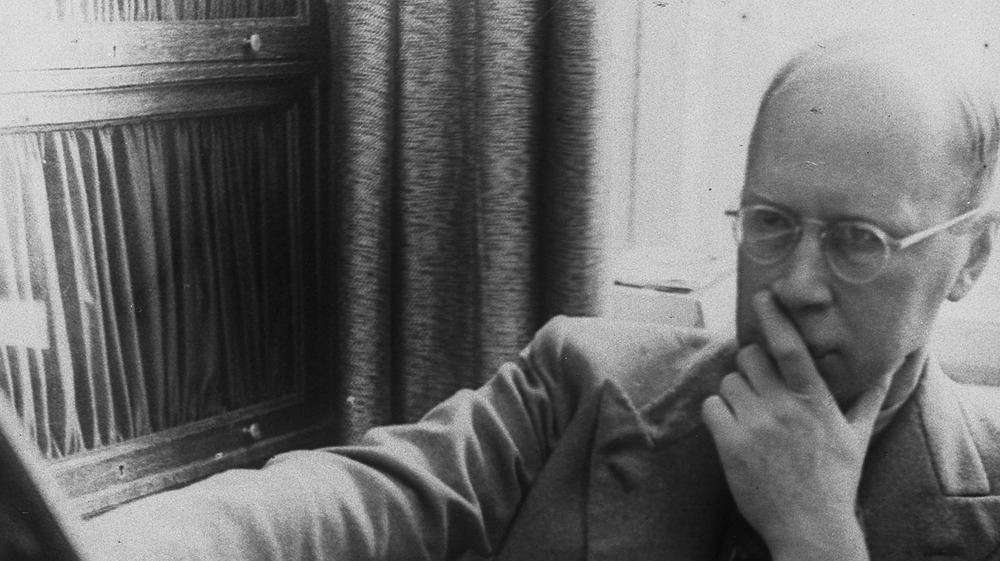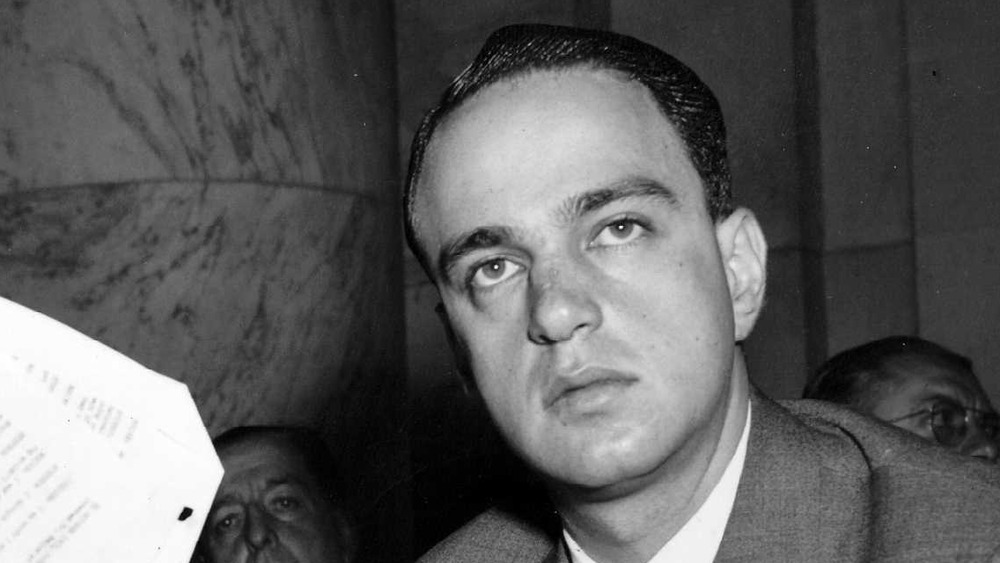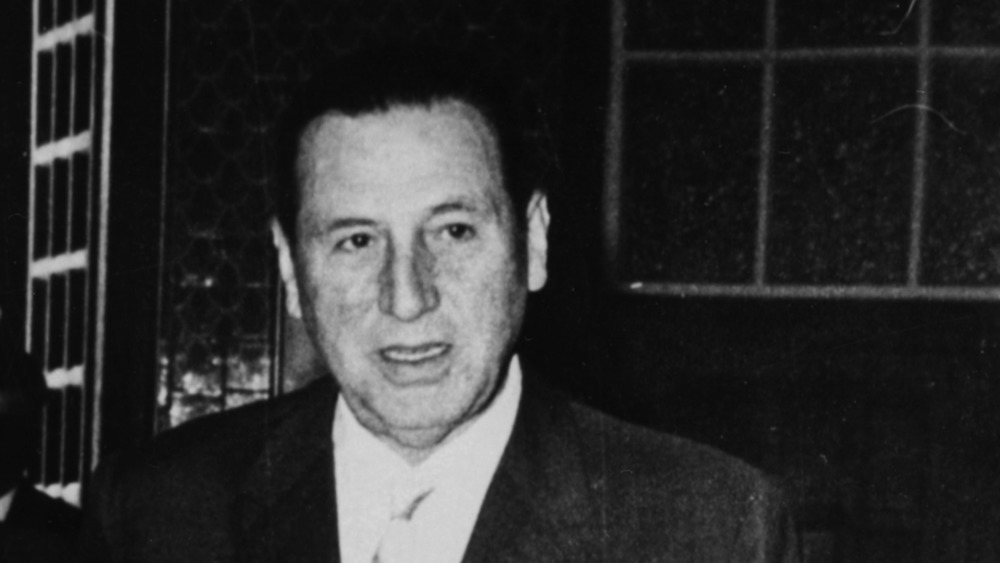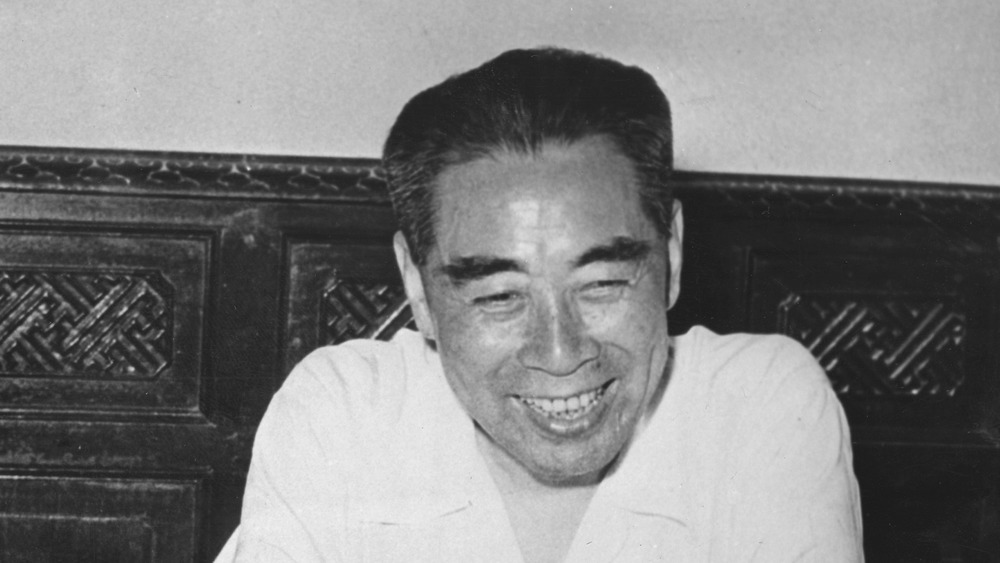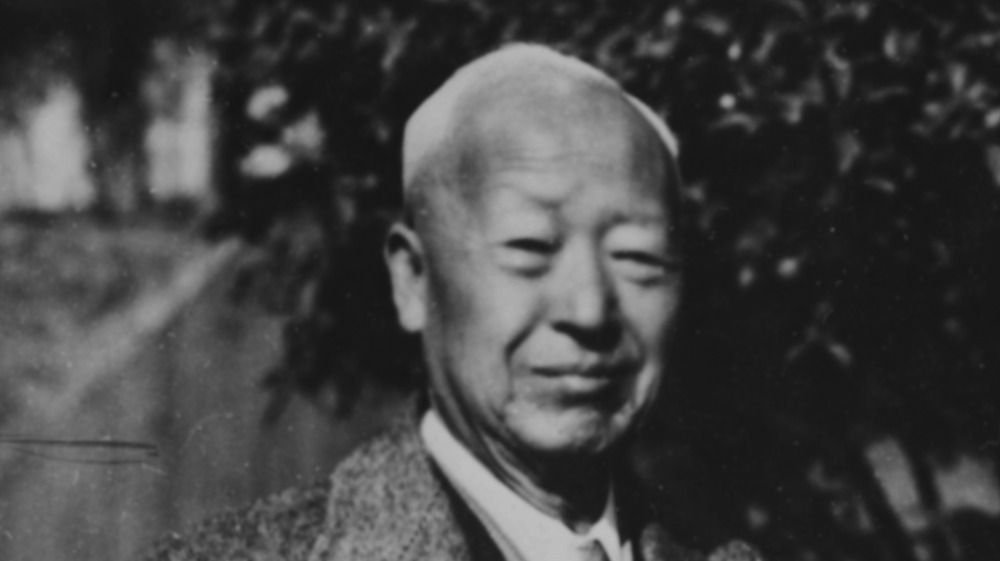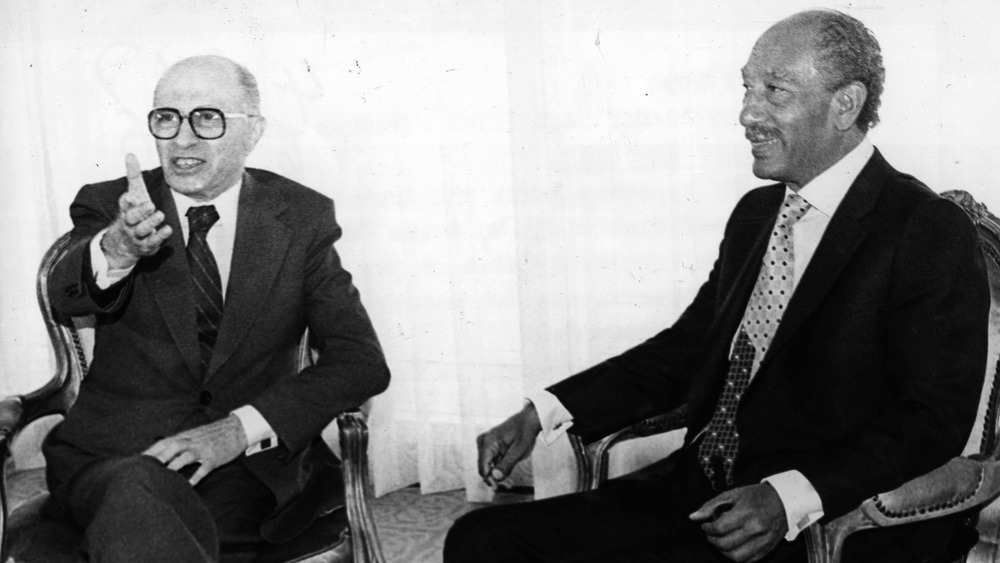Historical Figures From 'We Didn't Start The Fire' You Don't Know Anything About
When was the last time you actually thought the people mentioned in "We Didn't Start the Fire"? Take a listen and see if you recognize all of the historical figures that it lists.
In Billy Joel's iconic song "We Didn't Start the Fire," Joel lists off over 100 famous events and people, starting in the year 1949, the year that Joel was born, and ending in 1989, the year that the song was released.
Although the song isn't a comprehensive list of important people from history, and the only non-man mentioned in the song who isn't an actress is Sally Ride, it's a great time capsule of people deemed important enough to be historical. And while some of the names remain fresh in our memory, other people have faded from public knowledge despite the importance they held at the time. Here are some historical figures from "We Didn't Start the Fire" you don't know anything about.
Walter Winchell: Inventor of the gossip column
Born on April 4th, 1897 in East Harlem, Walter Winchell went from being a vaudeville performer to becoming one of the most well-known gossip columnists in the United States. According to NYPL, Winchell effectively invented the modern gossip column, and frequently included wordplay and created slang for his columns. These phrases even ended up becoming known as "Winchellisms," and some of them, like calling a new baby a "blessed event," can be attributed to him.
By the 1930s, Winchell moved onto radio and became "arguably the most popular and most influential newsman in the world." But before long, the pedestal he'd placed himself on was being knocked down. For a period before Secretary of National Defense James V. Forrestal passed away in 1949, according to Time Magazine, Winchell and commentator Drew Pearson attacked him repeatedly. The Washington Post writes that these attacks started in 1947 and went on through the years to "[slam] Forrestal for his Wall Street ties and his hawkish policies."
Forrestal died by suicide after having resigned, and several newspapers, including the New York Times and the Washington Post blamed and chastised Winchell and Pearson: "In the Pearson and Winchell assaults on Forrestal, one thing was clear: both had overstepped the bounds of accuracy and decency, both had strayed far from their responsibilities as journalists."
Rosenbergs: Civilians executed for espionage
In 1950, Ethel and Julius Rosenberg were both arrested on suspicion of espionage. They were named by Ethel's younger brother, Sgt. David Greenglass, who also admitted that he'd acted as a spy and had helped pass secret information to the USSR.
According to the Atomic Heritage Foundation, the Rosenberg's couldn't be charged with treason, since the United States wasn't officially at war, so instead they were charged with "conspiracy and providing atomic secrets to the USSR." Rosenberg reportedly had an extensive network of spies, and since Greenglass worked as a machinist at Los Alamos, he was able to pass on to Julius various "atomic research secrets."
The couple was found guilty, and on June 20th, 1953, Ethel and Julius Rosenberg were executed, becoming "the first civilians in American history to be executed for espionage." PBS writes that "U.S. authorities never expected to carry out the executions," and had thought that the death sentence would make the Rosenbergs confess, although they maintained their innocence the entire time. When they didn't confess, they both ended up being given the electric chair. And according to The Guardian, Greenglass probably altered his story in an attempt to protect his own wife: "Although she was never indicted, Ruth Greenglass may have played the role that Ethel Rosenberg was accused of, typing notes for Julius Rosenberg to send to the Russians."
Santayana goodbye: Death of a philosopher
Jorge Agustín Nicolás Ruiz de Santayana y Borrás, also known as George Santayana, was a Spanish-American philosopher who passed away on September 26th, 1952. Born in 1863, during his life he was considered to be one of the most influential 20th century thinkers. The New Criterion writes that during the 20th century, Santayana's writings were read widely: "Not only his semi-autobiographical novel, but also his poetry, essays, and wide-ranging philosophical writings were eagerly read and digested, flowering in turn in the sentiments and opinions of several generations of readers."
Santayana's writings worked "to bankrupt Cartesianism, and in doing so to suggest a new starting point for philosophy." According to IEP, for Santayana, the idea of certainty is "a transcendent vision of essence and as such has nothing to do with knowledge, much less science," especially once indubitable knowledge becomes a paradox through the introduction of radical skepticism.
But after his death, Santayana seemed to disappear from public memory. His writings are no longer widely taught, and his philosophical writings have been reduced to misremembered aphorisms. However, it's tragically ironic that the one line of Santayana's that often comes up, though unattributed, reads "Those who cannot remember the past are condemned to repeat it."
Malenkov: Who came after Stalin?
Although everyone remembers Nikita Khrushchev as the leader of the Soviet Union after Stalin's death in 1953, he actually wasn't Stalin's immediate successor. After Stalin died on March 5th, 1953, Georgy Maksimilianovich Malenkov briefly took the reins of the Soviet Union, but within several weeks he found himself "being edged aside by Nikita Khrushchev," writes YourDictionary. Malenkov only lasted as prime minister and head of the party for a few months, but although he was allowed to give up his position as head of the party, according to The Famous People, he remained premier of the Soviet Union until 1955, when Khrushchev deposed him.
In 1956, Malenkov attempted a coup against Khrushchev with Lazar Kaganovich, Vyacheslav Molotov, and Nikolai Bulganin. However, their coup was unsuccessful and as punishment, Malenkov was "sent to Kazakhstan as head of the Ust-Kamenogorsk hydroelectric station." But at the hydroelectric plant, no one respected him or listened to his directions, so he was forced to resign from his position. In 1964, Malenkov was officially removed from the Communist party. He ended up living in Moscow in "relative obscurity" until his death in 1988.
Malenkov was often derided as a revisionist, but in the end some of his proposals, like the idea that "a greater emphasis should be placed on increasing production of food and consumer goods, rather than heavy industry," were enacted by Soviet leaders.
Nasser: A revolutionary Egypt
On July 23rd, 1952, General Muhammad Naguib and Lieutenant Colonel Gamal Abdel Nasser led a successful coup against the Egyptian monarchy. According to Middle East Monitor, King Farouk was forced to abdicate on July 26th, and the following year he went into exile "on the same yacht his grandfather, Ismail, had left for exile on over 70 years earlier." And according to The New Yorker, the CIA even gave their assistance with the coup, although initially they'd wanted to simply influence King Farouk in what was known as Project Fat F*cker.
Meanwhile, on June 18th, 1953, Egypt's constitutional monarchy was abolished and it was declared that Egypt was a republic. Naguib became president and prime minister, while Nasser became vice prime-minister. However, according to The Guardian, Nasser was "the real power behind the new throne."
And even before Nasser announced that the Suez Canal Company was to be nationalized in 1956, his reign over Egypt was growing stronger and stronger as he overtook power from Naguib. In 1954, Naguib resigned and Nasser took control as prime minister. Nasser would become incredibly popular for developing "pan-Arabism to counter the pressures from the West and the Soviets," PressBooks writes.
Prokofiev: A departed musician
Sergei Prokofiev was one of the most prolific composers of the 20th century. Born in Sontsovka, Ukraine in 1891, he died the exact same day as Stalin, on March 5, 1953. And according to La Scena Musicale, as a result of this simultaneous death, "Prokofiev [became] Stalin's final victim."
Prokofiev died approximately 50 minutes before Stalin, and as a result the entire nation's attention was focused on Stalin's funeral. There weren't even any flowers at Prokofiev's funeral because Stalin's men had collected them all. Some had heard of Prokofiev's death, but it took three days for the news to reach the West, and another three days for it to show up in Pravda.
During his life, Prokofiev composed numerous operas and ballets, including his iconic transcreation of the children's story Peter and the Wolf, as well as piano concertos. According to Radio Free Europe, he was also someone that the Stalinist regime courted and convinced to return to the USSR. But once there, Prokofiev found himself trapped in a "Faustian bargain." When Prokofiev died, his wife Lina had already been arrested and was in the Gulag system. And apparently, when her son notified her of her husband's death, the censors blocked out that very part, likely because it also alluded to the death of Stalin.
Roy Cohn: McCarthy's right-hand man
Roy Cohn's first claim to fame came out of his prosecuting the Rosenberg's trial. Despite the fact that the trial was "riddled with prosecutorial misconduct," according to Esquire, the Rosenbergs were convicted and Cohn became indispensable to Senator Joseph McCarthy's Red Scare.
According to The Guardian, after the Rosenberg trial, Cohn linked up with both McCarthy and FBI director J. Edgar Hoover as they interrogated people they suspected to be affiliated with communism. The McCarthy hearings continued, but when Cohn turned on the US Army in 1954 during the Army-McCarthy hearings, "the press finally turned on him."
AP News writes that during the hearings, "Army counsel Joseph N. Welch came across as a simple, plain-spoken hero, McCarthy as a bully." Cohn sought to keep his reputation intact, even defending the hearings in an article for Esquire, but it was too late and "letters of complaint poured in." As a result, Cohn resigned and went into private practice. In his private practice, Cohn became known for "his careful manipulation of negative attention," which landed him a position as one of Donald Trump's lawyers in 1973. Cohn worked for Trump until his death in 1986.
Juan Perón: A moment of exile
In 1955, Juan Domingo Perón was ousted by the military as president of Argentina, leading to an exile that lasted 18 years until his short-lived return to Argentina. During his first term as president, Perón's popularity was greatly helped by his wife Eva Perón as he "nationalized banks and railways, centralized the grain industry, and raised worker wages," according to ThoughtCo. But after Eva died and the economy stagnated, the military launched a coup and drove Perón out of Argentina on September 19th, 1955.
According to Inquiries, "through his provision of concrete benefits, his acknowledgement of workers' problems and his recognition of their individual and collective rights and interests, Perón became incredibly popular among the Argentine people, but he was still more interested in dictatorship than democracy." Perón was known for rigging elections, censoring the media, and arresting political opponents, all the while using "democratic rhetoric to justify his rule."
For many, Perón has a mixed legacy. While he improved Argentina's infrastructure and increased workers' rights, he also allowed Nazi war criminals to escape to Argentina after the Second World War. And despite petitioning for women's suffrage, Perón did this because he "needed to broaden his political base, and the recently enfranchised women were 'fertile ground' for the garnering of new votes." Perón returned to Argentina as president 1973 but within a year he died of a heart attack.
Zhou Enlai: Repeatedly dodging death
On April 11th, 1957, the Kashmir Princess, a chartered flight from Hong Kong to Bandung, exploded mid-air, killing 16 out of the 19 people onboard. The explosion was an assassination attempt, but its target, Zhou Enlai, also written Chou En-Lai, wasn't on the plane. Counterpunch reports that the terrorists behind the bombing "had presumed that the plane would be carrying the Chinese Premier Chou En-Lai," but didn't know for sure because his travel plans were kept secret. And according to China Daily, the Kashmir Princess was actually scheduled to pick up Zhou sometime after April 14th.
This wasn't Zhou's last brush with death. According to The New York Times, Zhou was one of the few original Mao Zedong supporters who survived the purges of the Cultural Revolution. But even this didn't last, and according to Kirkus, Mao finally turned on Zhou after U.S. President Nixon's visit to China in 1972. However, "unlike many other loyal supporters on whom Mao eventually turned, Zhou proved adept at dodging the attacks launched by the chairman and his vengeful wife Jiang Qing—attacks that persisted right up until Zhou finally succumbed to cancer in 1976."
As of 2021, no one knows for certain who was behind Zhou's attempted assassination. However, most believe that the Taiwanese KMT and the American CIA were involved, writes World History Project.
Syngman Rhee: Rescued by the CIA
Syngman Rhee was appointed as the head of the South Korean government by the United States in 1945 and went on to become the first president of South Korea in 1948. But according to Wilson Center, "he led a feeble state, beset by economic problems, army mutiny, government infighting and, most of all, a bitter rivalry with North Korea."
The United States supported Rhee's dictatorship, despite the numerous civilian massacres and peasant uprisings, since he was a fervent anti-communist. According to Boston University, Rhee was also responsible for the execution of Cho Bong Am, one of his political opponents. All That's Interesting writes that "at least 100,000 civilians were executed by the U.S.-backed regime during the Korean War," though this is a conservative estimate. Rhee was forced to stop down in April, 1960, after students and professors at Korea University started protesting, calling for new elections and an end to police brutality.
On April 26th, Rhee was flown to Honolulu by the CIA, where he remained in exile until his death in 1965. After Rhee was exiled, Yun Posun was elected president, but in 1961 he was overthrown by Park Chung-Hee's military coup, which was "tacitly supported by the U.S."
Begin: Negotiating the Camp David Accords
Within a year of being sworn into power, Prime Minister Menachem Begin of Israel became famous worldwide for negotiating the Camp David Accords with U.S. President Jimmy Carter and Egyptian President Anwar el-Sadat in 1978. USIP writes that the Camp David Accords are considered "a cornerstone of regional security," and they "paved the way" for various other accords and treaties in the Middle East.
However, according to Arab News, the Camp David Accords "didn't address the underlying reasons behind tension in the region." And The Washington Post reports that it was during the Camp David summit that "the Carter administration abandoned its support for Palestinian self-determination, blocked the establishment of an independent Palestinian state in Gaza and the West Bank and perpetuated the indefinite Israeli occupation of the occupied Palestinian territories — policies that continue to this day." It's because of this that the Camp David Accords "deliberately contained no mention of 'self-determination' for the Palestinians," despite the fact that Egyptian officials repeatedly pushed for such language.
Ultimately, the biggest outcome of the Camp David Accords was the normalization of Egypt and Israel's political and economic ties. However, it did little towards the conflict between Palestine and Israel. The Nobel Prize writes that in 1978, Begin and el-Sadat were jointly awarded the Nobel Peace Prize for negotiating peace between Egypt and Israel.
Bernie Goetz: The 'Subway Vigilante'
On December 22nd, 1984, New Yorker Bernhard "Bernie" Goetz, a white man, was approached by four Black teens on the subway. According to Oxygen, it's disputed exactly how their exchange went: "They either asked Goetz for $5 or demanded it." But no one doubts Goetz's response. Taking out a gun, he shot at all four boys: Troy Canty, Barry Allen, James Ramseur, and Darrell Cabey. Although they all survived, Cabey remains paralyzed and suffered brain damage as a result of the shooting.
Biography writes that Goetz fled the scene and went to New Hampshire, but after eight days he turned himself over to the police. And upon returning to New York, he found that he'd become a celebrity and was being hailed as a hero. Even Joan Rivers sent him a telegram of "love and kisses." In 1987, Goetz was acquitted of attempted murder by a predominantly white jury, despite the fact that in his interrogation video Goetz states, "I wanted to kill those guys." However, he was convicted for criminal possession of a weapon and served eight months as a result.
In 1996, Cabey sued for damages in civil court, and the jury found that Goetz "had deliberately inflicted emotional distress on Cabey," since Goetz had looked at Cabey after shooting him once and said, "You don't look so bad, here's another." Cabey was awarded $43 million, but Goetz filed for bankruptcy less than a week after the verdict so Cabey never received anything.
